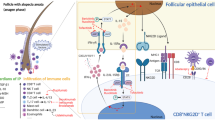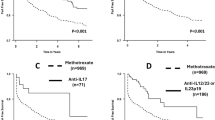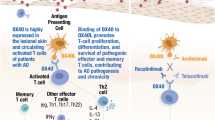Abstract
Background and Objectives
Upadacitinib is an oral selective Janus kinase-1 inhibitor approved for the treatment of moderate-to-severe atopic dermatitis (AD) in patients \(\ge\) 12 years of age. In real life, upadacitinib currently represents a valid therapeutic option for patients failing available systemic therapies, in particular patients who discontinued dupilumab because of lack of efficacy or occurrence of adverse events. The objectives of the present study were to compare the effectiveness and safety of upadacitinib in patients affected by AD who had previously failed dupilumab therapy versus biologic naïve patients.
Methods
A retrospective, multi-centre, observational, real-life study was conducted in four Italian dermatological referral centres (Milan, Perugia, Naples and Vicenza). Baseline characteristics included age, sex, AD history and severity, prior treatments, comorbidities and concomitant therapies. AD severity was assessed at baseline and at week 4 (W4), W16, W24 and W52, using Eczema Area Severity Index (EASI), Dermatology Life Quality Index (DLQI) and Pruritus Numerical Rating Scale (P-NRS) scores. Full blood count, hepatic and renal function, lipid panel, and muscle enzymes [lactate dehydrogenase (LDH) and creatine phosphokinase (CPK)] were assessed at baseline and at each follow-up visit.
Results
A total of 113 patients (72 males, 63.7%; mean age: 37.22 ± 16.8 years) were included in the analysis, all patients were in treatment and underwent follow-up period until W16, whilst 91 (80.5%) and 75 (66.4%) patients were in treatment and in follow-up period until W24 and W52, respectively.
Mean EASI score significantly changed from 24.30 ± 10.27 to 1.28 ± 4.34, 0.74 ± 2.31 and 0.25 ± 1.34 at W16, W24 and W52, respectively (p < 0.0001). Specifically, at W16 the percentage of patients achieving EASI-75, EASI-90 and EASI-100 was 85.21, 76.35 and 66.11%, respectively. At W24, EASI-75, EASI-90 and EASI-100 were reached by 88.54, 85.42, and 78.37% of patients, respectively. Finally, 90.1% of patients achieved EASI-75, 88.3% achieved EASI-90 and 83.0% achieved EASI-100 at W52.
Conclusions
This study confirmed the clinical effectiveness of upadacitinib treatment in adult patients in a real-world setting with moderate-to-severe AD who had discontinued dupilumab due to poor effectiveness or adverse events and who were biologic naïve; therefore, previous treatments do not seem to affect the response to upadacitinib treatment.




Similar content being viewed by others
References
Siegels D, Heratizadeh A, Abraham S, et al. Systemic treatments in the management of atopic dermatitis: a systematic review and meta-analysis. Allergy. 2021;76(4):1053–76. https://doi.org/10.1111/all.14631.
Rinvoq-European Medicines Agency. https://www.ema.europa.eu/en/medicines/human/EPAR/rinvoq. Last access 4 Aug 2023.
Guttman-Yassky E, Thaçi D, Pangan AL, et al. Upadacitinib in adults with moderate to severe atopic dermatitis: 16-week results from a randomized, placebo-controlled trial. J Allergy Clin Immunol. 2020;145(3):877–84. https://doi.org/10.1016/j.jaci.2019.11.025.
Guttman-Yassky E, Teixeira HD, Simpson EL, et al. Once-daily upadacitinib versus placebo in adolescents and adults with moderate-to-severe atopic dermatitis (Measure Up 1 and Measure Up 2): results from two replicate double-blind, randomised controlled phase 3 trials. Lancet. 2021;397(10290):2151–68. https://doi.org/10.1016/S0140-6736(21)00588-2.
Chiricozzi A, Ortoncelli M, Schena D, et al. Long-term effectiveness and safety of upadacitinib for atopic dermatitis in a real-world setting: an interim analysis through 48 weeks of observation [published online ahead of print, 2023 Jun 15] [published correction appears in Am J Clin Dermatol. 2023 Aug 19]. Am J Clin Dermatol. 2023. https://doi.org/10.1007/s40257-023-00798-0.
Patruno C, Fabbrocini G, Potestio L, Genco L, Napolitano M. Real-life efficacy and safety of upadacitinib in adolescents with moderate-to-severe atopic dermatitis unresponsive to dupilumab: a case series. J Eur Acad Dermatol Venereol. 2023;37(7):e901–3. https://doi.org/10.1111/jdv.19011.
Napolitano M, Fabbrocini G, Genco L, Martora F, Potestio L, Patruno C. Rapid improvement in pruritus in atopic dermatitis patients treated with upadacitinib: a real-life experience. J Eur Acad Dermatol Venereol. 2022;36(9):1497–8. https://doi.org/10.1111/jdv.18137.
Patruno C, Fabbrocini G, De Lucia M, Picone V, Genco L, Napolitano M. Psoriasiform dermatitis induced by dupilumab successfully treated with upadacitinib. Dermatol Ther. 2022;35(11): e15788. https://doi.org/10.1111/dth.15788.
Leshem YA, Hajar T, Hanifin JM, Simpson EL. What the Eczema Area and Severity Index score tells us about the severity of atopic dermatitis: an interpretability study. Br J Dermatol. 2015;172(5):1353–7. https://doi.org/10.1111/bjd.13662.
EMA recommends measures to minimise risk of serious side effects with Janus kinase inhibitors for chronic inflammatory disorders. https://www.ema.europa.eu/en/documents/referral/janus-kinase-inhibitors-jaki-article-20-procedure-ema-confirms-measures-minimise-risk-serious-side_en-0.pdf. Last access 23 Aug 23.
Blauvelt A, Ladizinski B, Prajapati VH, Laquer V, Fischer A, Eisman S, Hu X, Wu T, Calimlim BM, Kaplan B, Liu Y, Teixeira HD, Liu J, Eyerich K. Efficacy and safety of switching from dupilumab to upadacitinib versus continuous upadacitinib in moderate-to-severe atopic dermatitis: Results from an open-label extension of the phase 3, randomized, controlled trial (Heads Up). J Am Acad Dermatol. 2023;89(3):478–85. https://doi.org/10.1016/j.jaad.2023.05.033.
Boesjes CM, Van der Gang LF, Zuithoff NPA, Bakker DS, Spekhorst LS, Haeck I, Kamsteeg M, De Graaf M, De Bruin-Weller MS. Effectiveness of upadacitinib in patients with atopic dermatitis including those with inadequate response to dupilumab and/or baricitinib: results from the BioDay registry. Acta Derm Venereol. 2023;103:adv00872. https://doi.org/10.2340/actadv.v103.5243.
De Greef A, Ghislain PD, de Montjoye L, Baeck M. Real-life effectiveness and tolerance of upadacitinib for severe atopic dermatitis in adolescents and adults. Adv Ther. 2023;40(5):2509–14. https://doi.org/10.1007/s12325-023-02490-5.
Georgakopoulos JR, Sheka D, Rankin B, Maliyar K, Rimke A, Prajapati VH, Yeung J. Real-world effectiveness and safety of upadacitinib for the treatment of atopic dermatitis in adult patients switched from dupilumab: a multicenter retrospective study. J Am Acad Dermatol. 2023;S0190–9622(23):02645–52. https://doi.org/10.1016/j.jaad.2023.08.059.
Author information
Authors and Affiliations
Corresponding author
Ethics declarations
Funding
No funding was received to conduct this study. For some of the patients, AbbVie provided the drug upadacitinib through a compassionate use programme activated according to the DM 7/9/2017.
Conflict of interest
MN acted as speaker, consultant and advisory board member for Sanofi, Abbvie, Lilly, Leo Pharma and Pfizer; S.M.F. is speaker of Novartis and Sanofi Genzyme, is principal investigator for Eli Lilly, AbbVie, Sanofi Genzyme, and is an advisory member of Sanofi Genzyme; L.S. acted as speaker and board member for Sanofi-Genzyme; C.P. acted as investigator, speaker, consultant and advisory board member for AbbVie, Eli Lilly, Novartis, Pfizer, Pierre Fabre and Sanofi. The other authors have no competing interests to declare.
Ethics approval
Approval of this study was obtained by the Local Ethics Committee (Prot. N. 116/20, approved on December 5, 2022).
Consent to participate
The patients in this manuscript have given written informed consent to participate in the study.
Consent for publication
The patients in this manuscript have given written informed consent to publication of their case details.
Data availability statement
All data are reported in the current study.
Code availability
Not applicable.
Author contributions
All authors made substantial contribution to this manuscript and in detail: MN conceptualized, designed the study, analysed and interpretated the data and drafted the article; SMF, KH, EP and EA acquired data and clinically managed patients; LF and VP performed statistical analysis of data with graphical and tabular conceptualization; LS and CP reviewed the article critically for important intellectual content. All authors read and approved the final version of the manuscript.
Rights and permissions
Springer Nature or its licensor (e.g. a society or other partner) holds exclusive rights to this article under a publishing agreement with the author(s) or other rightsholder(s); author self-archiving of the accepted manuscript version of this article is solely governed by the terms of such publishing agreement and applicable law.
About this article
Cite this article
Napolitano, M., Ferrucci, S.M., Foggia, L. et al. Comparison of Long-Term Effectiveness and Safety of Upadacitinib for Atopic Dermatitis Between Dupilumab-Exposed and Dupilumab-Naïve Patients. Clin Drug Investig 44, 71–77 (2024). https://doi.org/10.1007/s40261-023-01336-w
Accepted:
Published:
Issue Date:
DOI: https://doi.org/10.1007/s40261-023-01336-w




